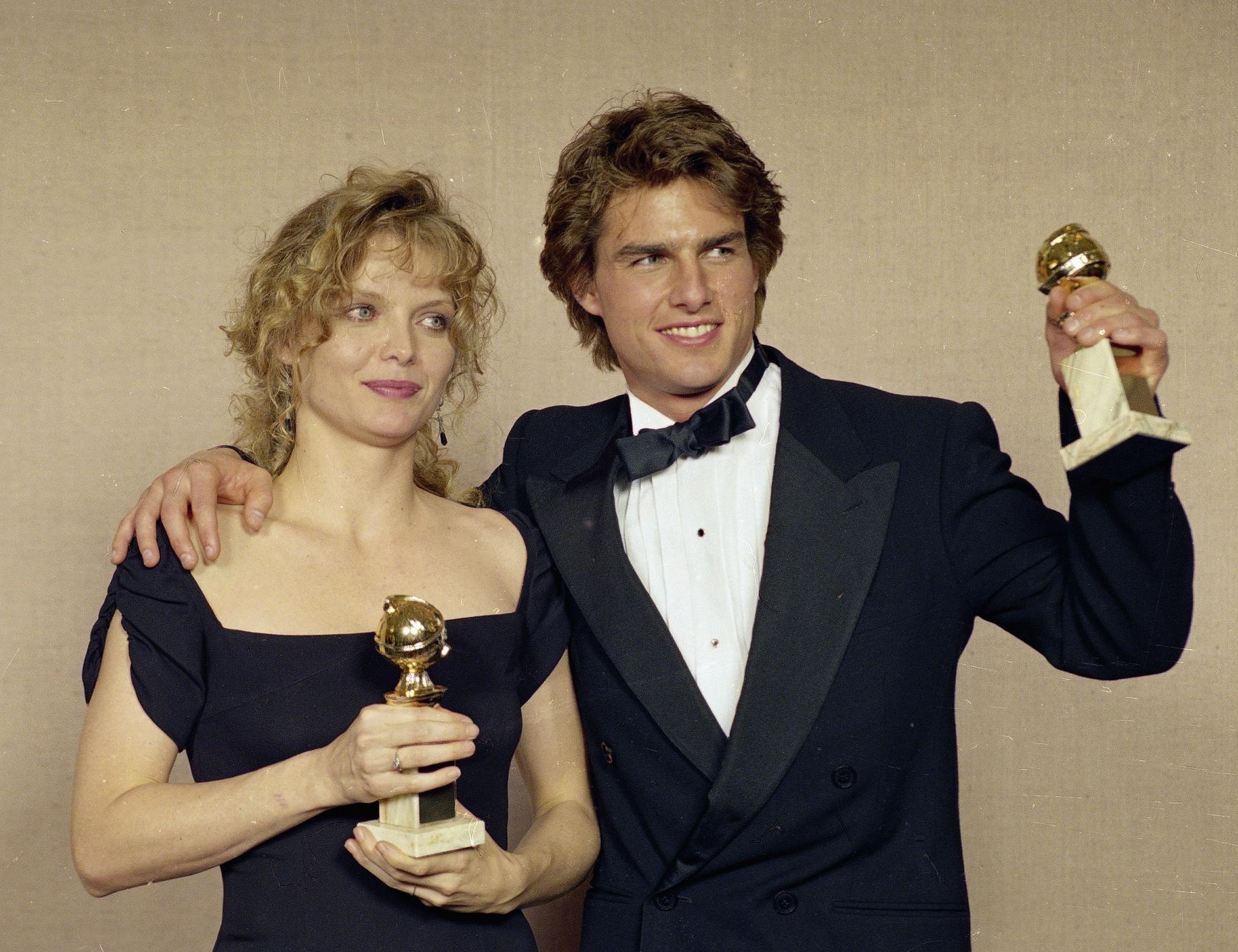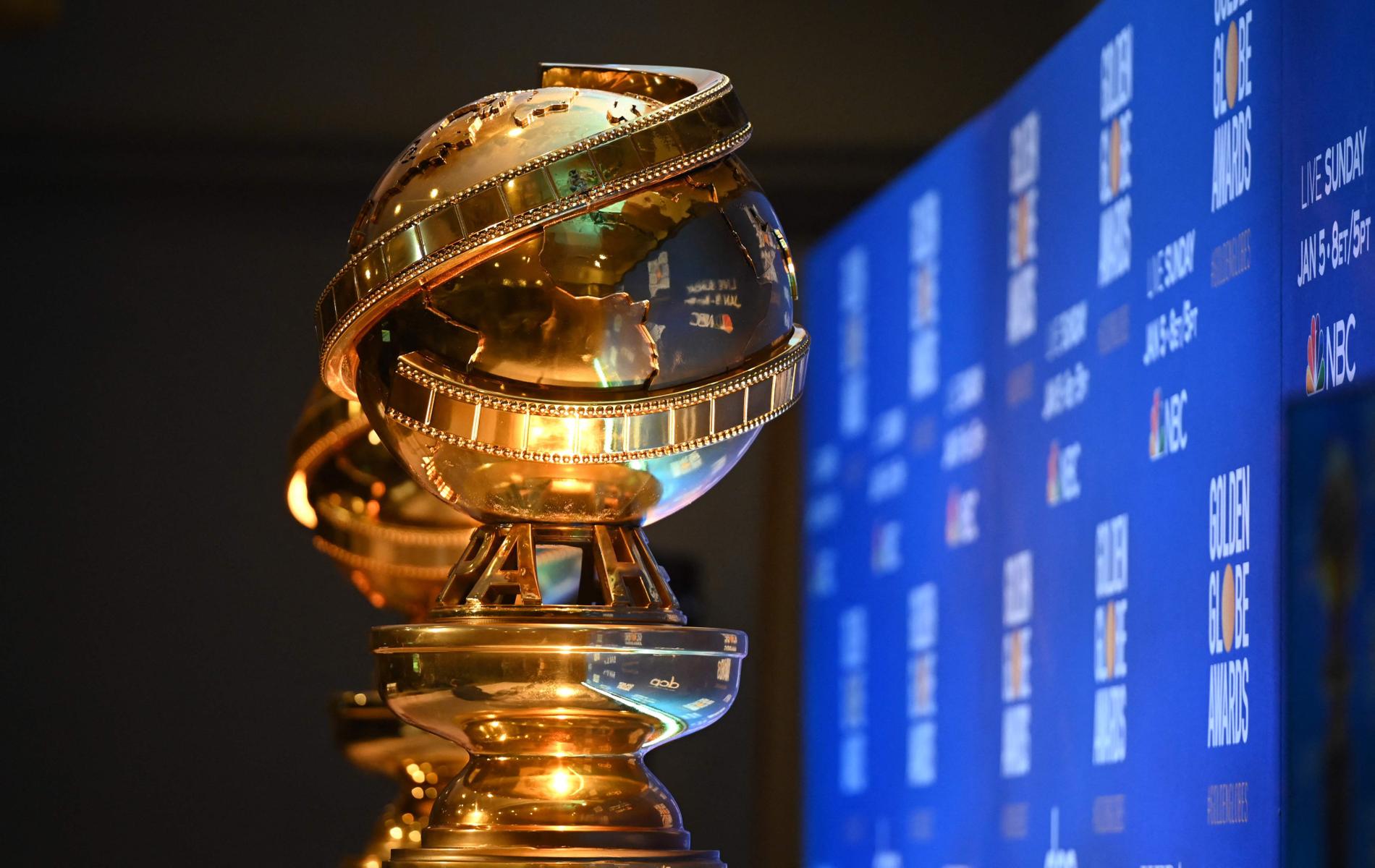

When Michelle Pfeiffer and Tom Cruise celebrated the Golden Globes in 1990, the award ceremony was in full swing.
This year, there’s not much more excitement about who will win the Gold Award, but whether the winners will take home the award.
When the Golden Globes are awarded on Monday night, there will be no red carpet.
There will also be no television broadcasts, just a short session in a luxury hotel in Beverly Hills.
Coinciding with cultural and structural turmoil in the United States, the spotlight is shedding light on the age-old practice of the scandalous organization behind Hollywood’s second most important award.
The lack of diversity among members (who until last year had not had a black member in 20 years), the union’s mentality and controversial ethical standards, have been the core of criticism of the organization.
And amid the controversies: two Norwegians.
Behind the Golden Globes was a small, closed group of international journalists who received gifts and luxury tours from film and television producers in the hope of voting for them:
The Hollywood Foreign Press Association (HFPA), or Hollywood Foreign Press Association in Norwegian, has long been one of the most powerful organizations in the film capital.
The Golden Globe Awards have been presented since 1944, after the press organization HFPA was founded the previous year An initiative by journalists in the British Daily Mail Ensure that foreign journalists have access to movie stars for interviews.
The timing of the awards ceremony, shortly before the Oscars, raises the status of the award, making it an important indicator of who will win the award for the most famous film.
After the Academy Awards and Grammy Awards, the Golden Globes were usually the third most popular in the United States, in terms of viewership.
Rather than being decided by a jury, both the Golden Globes and the Oscars are awarded based on a vote among the organizations’ members.
This led to relatively intense lobbying campaigns and ingenious attempts to win over members.
in a expert in this Convicted movie mogul and scandal-hit was Harvey Weinstein.
In the end the Oscar Academy had to do it Enter the rules Which prevented members from attending extravagant parties organized by film companies, which is one of Weinstein’s specialties.
Special Advisers currently charge about 400,000 NOK in fees for pressure films, and a success fee from 175,000 to 265,000 NOK depending on whether the film is nominated or won, according to a contract. Los Angeles Times Gained access to.
But where Oscar has about 9,400 members with voting rights, the Hollywood Association of Foreign Journalists is made up of fewer than 100 journalists (now 105). This allows lobbyists to work more purposefully.
Tell HFPA members The New York Times About how they get special Christmas cards from movie stars and get champagne, expensive wine, art, cashmere rugs, cake and speakers delivered to their door.
The accusation that members can be influenced from the outside is not new.
A former leader resigned from the HFPA’s board after the awards ceremony in 1958, while saying that “some awards are given as services to some extent,” after a number of awards went to clients of the same PR agency, according to an article from Vanity Fair that same year.
In 1982, actress Pia Zadora won the award. So I got out That her wealthy husband had moved members of the HFPA to his casino in Las Vegas. Zadador to reject For the man bought her votes.
The HFPA said it is following its gift guidelines closely.
The question of whether votes could be bought back was raised when in 2019 more than 30 members of the HFPA were flown to Paris to visit the taping of the series “Emilie in Paris”, where they were housed in a luxury hotel, which is something Los Angeles Times exposed.
The series – which despite the popularity of the viewer It was slain by French film critics, among others Surprisingly nominated for two Golden Globe Awards.
The criticism of the HFPA and the Golden Globes came at the same time that a large societal debate about diversity was emerging in American society.
men The other worker was the Norwegian journalist Kjersti Flaa (48), sued the HFPA in 2020, having been denied membership for three consecutive years.
When I decided to sue the HFPA, I never imagined it would have such a big impact, Flaa tells VG today.
Flaa sued the HFPA because it believed the organization operated as an illegal cartel, which protects the privileges of a small and large group of journalists rather than allowing any qualified person to enter.
When the lawsuit was first dismissed, in part because the judge believed that she could not prove that she had suffered a financial or professional loss, the HFPA’s attorney stated that her lawsuit was “out of jealousy” and was an attempt at extortion.
Flaa appealed the decision.
In the wake of the Flaa case came the major newspapers Los Angeles TimesAnd finally, too The New York Times, with a number of disclosures about the party behind the award ceremony.
1 of 6Photo: OConnor/AFF-USA.com
– Everyone was afraid because the organization was very powerful and had a lot of money. Today, the whole of Hollywood is standing up to them and it feels like it’s kind of fair to me and all of my colleagues who over the years were treated disrespectfully by this group, says Fla.
On the other side of the conflict is another Norwegian journalist, Hollywood veteran Odd Berggren.
Bergreen is a member of the HFPA and has covered the stars in Hollywood since the early 1990s. For many years she regularly worked as a freelancer at VG through the column “Aud Meetings:”, where it was a frequent move that she posed with the stars in the pictures.
To counter criticism, the HFPA has, among other things, admitted 21 new members.
The fact that the Hollywood Association of Foreign Journalists brought in 20 new members of minority background is of course a step in the right direction, but the main problem is with the existing members, Fla says.
So-called journalists — most of whom are past retirement age — have made sure to keep the organization small by rejecting nearly all qualified journalists in recent decades, she said.
Flaa sued Berggren personally as part of the lawsuit against the HFPA. She thinks Bergren tried to stop her to avoid competition. The latter responds to the email when VG confronts her with the accusations:
– I have no comment on Kjersti Vla’s false accusations against me, other than the fact that she lost twice in court, and that her last appeal is still valid. Since she insists that her case be taken to the press, and that she now appears somewhat desperate, I will take her incorrect and derogatory allegations about me with our attorneys, writes Odd Berggren.
1 of 5Photo: Aud Berggren / VG
Television programs have provided the Hollywood Association of Foreign Journalists with significant revenue. For years the tax-free organization has donated millions to good causes, including one of the world’s largest investigative journalism networks, the International Consortium of Investigative Journalism.
– The reason the Sunday distribution is special is because they can’t convince a celebrity to present the awards. It’s an exciting change. They are like the mafia now. Nobody can be seen with them anymore. Dutch journalist Diederik van Hoogstraten, who defected from the HFPA, said the brand has collapsed New York Post Saturday.
Kjersti Fella, for her part, is excited to continue:
– I think most people were pretty shocked when they chose to do The Show. The fact that all the celebrities refused to participate came as no surprise, so to speak. Now it will be interesting to see how the winners will react, whether they will follow in Tom Cruise’s footsteps and bring back the statues, you think.
The Golden Globes have been in bad weather before. In 1968, the Federal Communications Commission (FCC), the US federal television regulator, among other things, made many of the same accusations against distribution as today: that the winners were the result of lobbying rather than outright elections.
The scandal that followed led to the distribution’s disappearance from television for four years. But she came back.
“There was positive publicity and negative publicity. We are still here,” then-leader Mahir Tatna said in a speech in 2018, when the organization turned 75 years old.
Flaa believes it will take “another miracle for the Golden Globe brand to survive”.
Before you add later:
– But who knows, maybe another channel will catch them. Anything is possible in Hollywood.

“Organizer. Social media geek. General communicator. Bacon scholar. Proud pop culture trailblazer.”

